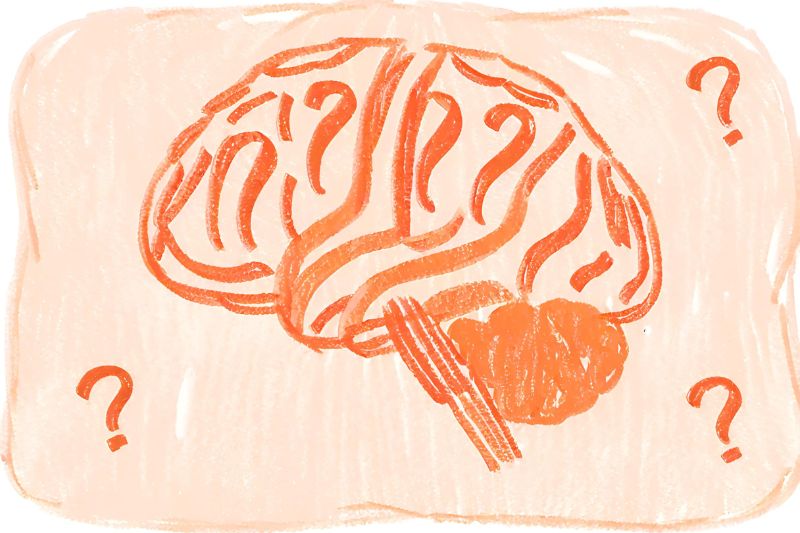Is It OK to Still Feel Anxious About COVID?
Years of COVID-related restrictions have left many of us struggling with mental health conditions. In this article, we'll explore what to do if you still feel anxiety over COVID-19.
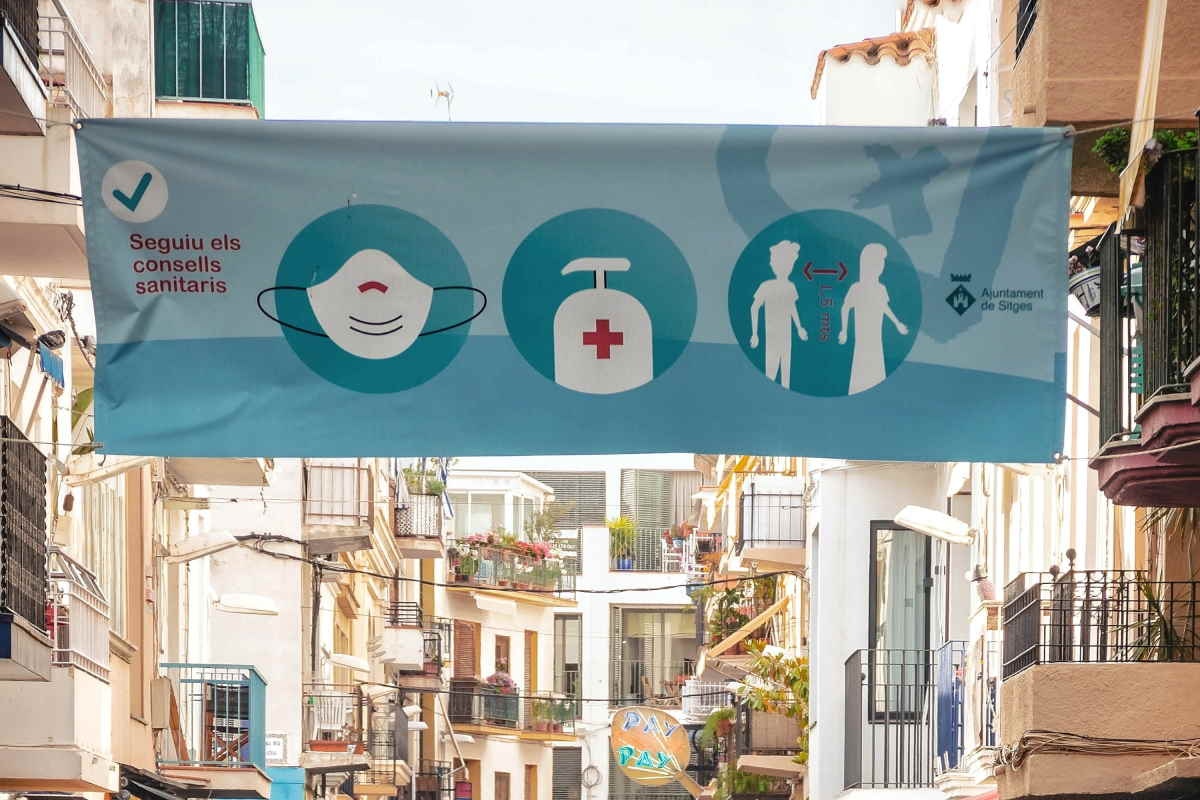
When we discuss the impact of COVID-19, we tend to think about it on a global scale. It can consequently be too easy to forget the ways in which the pandemic affected us as individuals. Each of us will have experienced the last few years differently. By the same token, the ‘return to normality’ is proving easier for some of us than others. You may therefore find yourself asking: is it OK to still feel anxious about COVID?
ManageMinds is here to explain why COVID anxiety is so prevalent, the ways in which it can affect our lives, and the reasons why it arises. We’ll also provide you with some useful advice that can help you to adapt more easily to the ‘new normal’.
What is COVID anxiety?
There are several reasons why someone may experience COVID anxiety. For some individuals, it can arise after having caught the virus. NHS Scotland notes that this is particularly likely if you spent time in intensive care as a result of the infection. In such instances, it can be thought of as a symptom of ‘long COVID’.
Not everyone experiencing COVID anxiety has had the virus, though. For many of us, it is a case of finding it difficult to adjust back to life after two years of pandemic-induced restrictions.
It’s easy to see why: after having been told that staying home, wearing a face mask and social distancing can keep us safe, it can be worrying to see society start to abandon these precautions. Feelings of anxiety may actually grow now that lockdowns and mandates have ended, with fewer and fewer people taking personal measures to avoid COVID-19.
An article by the World Health Organisation, meanwhile, notes that the COVID-19 pandemic has led to people across the globe dealing with multiple stressors at once. These include:
- Loneliness
- Fear of infection
- Suffering either experienced by oneself or by loved ones
- Grief
- Financial worries
- Restrictions on the ability to work and to engage with one’s community
- Limited access to support from others
What are the symptoms of COVID anxiety?
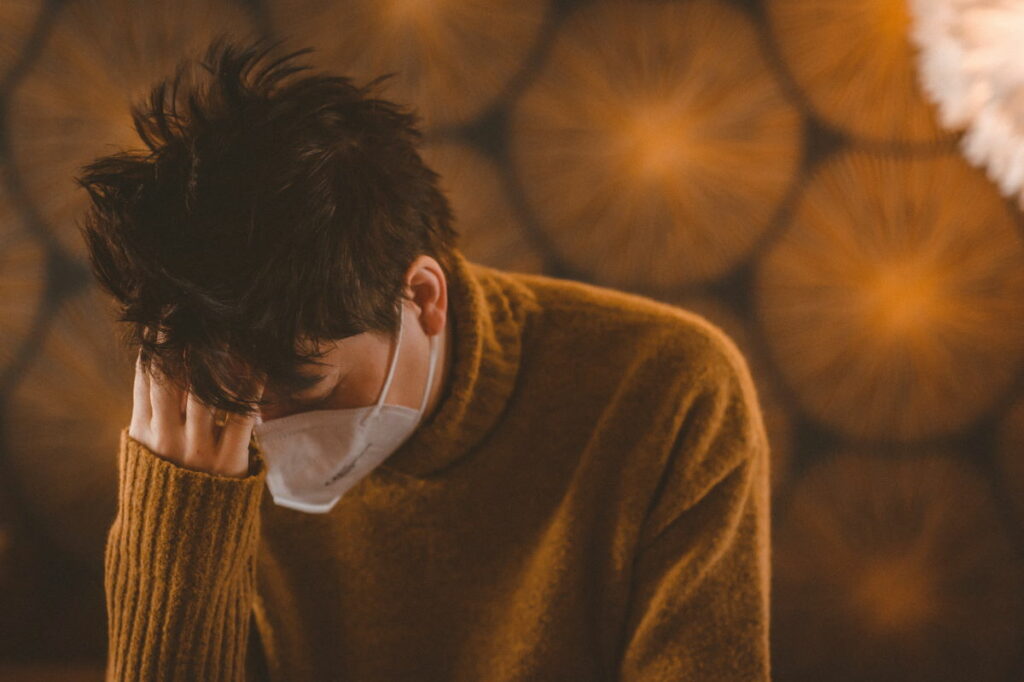
COVID anxiety can arise for varying reasons, but those affected by it are likely to experience similar symptoms. These can include:
- Sleep problems
- Concentration or memory issues
- Mood changes
- Flashbacks
- Breathing problems
- Chest pain
- Racing thoughts
Additionally, people with COVID anxiety are likely to experience significant worry. This may relate to fears that you or a loved one will catch the virus, or that you will not be the same after recovering. You may also have concerns about work, finances or your social life.
Relentless media coverage of the pandemic may also heighten your anxiety, particularly with distressing images being shown regularly both on the news and as part of awareness campaigns.
Many of us are likely to have felt anxious at some point as a result of the COVID-19 pandemic. However, if these symptoms become persistent, they can begin to have a serious impact on your life.
COVID anxiety syndrome
Due to the scale and wide-ranging impacts of the pandemic, some researchers have begun using the term COVID anxiety syndrome. This refers to a theorised mental health condition that is unique to those who have lived through this period.
Describing COVID anxiety syndrome can be difficult, as there is no agreed-upon medical definition. Research from Kingston University, however, found that it is characterised by behaviours such as “avoidance, checking, worrying and threat monitoring”. This ultimately stems from coping mechanisms adopted during the pandemic that “keep people locked into a state of continuous anxiety”.
It’s even believed that some symptoms commonly attributed to COVID itself could actually be the result of anxiety. The University of Manchester found that auditory symptoms such as hearing loss and tinnitus could emerge due to “factors like living through a pandemic, fears about what the virus might do, or recall bias” rather than because of infection.
Meanwhile, according to research published in the Irish Journal of Psychological Medicine, there could also be a second, less well-known form of COVID anxiety. Their theory is that contracting the virus can lead to inflammation of certain parts of the brain, potentially leading to mental health conditions such as anxiety and depression.
Is it normal to have COVID anxiety?
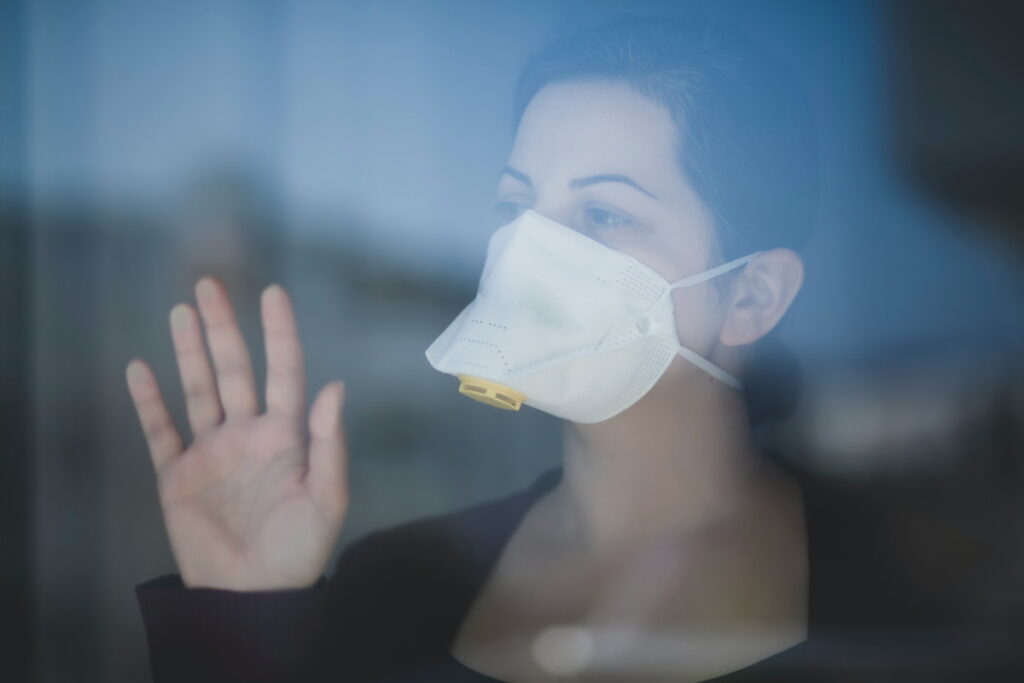
With the world seemingly having ‘gone back to normal’, it’s easy to assume that you are the only one experiencing COVID anxiety. The reality, however, is that you are not alone.
Anxiety is the most common mental health issue affecting those who have previously been infected with COVID-19. While it’s difficult to know exactly how many people are affected, the prevalence could be as high as 63%.
Symptoms of anxiety are, nonetheless, still prevalent amongst those who have never caught the virus itself. There have even been warnings of a “second pandemic” of mental health issues following on from COVID-19, while the World Health Organisation estimates that rates of anxiety and depression have increased by 25% worldwide.
As such, it’s important not to dismiss your feelings and to recognise that they represent your mind’s response to a stressful, unprecedented situation. Whether your anxieties are centred on contracting COVID-19 itself or on returning to what was once everyday life, accepting that you have them is a really important first step in learning to live with them.
Can COVID cause anxiety and depression?
When we think about the effects of the COVID-19 virus, we tend to think of physical symptoms: a loss of taste and smell, a continuous cough, fever, and so on. However, it has become increasingly clear that some people experience a much broader range of symptoms that can last far beyond the initial infection period. This encompasses mental health conditions such as anxiety and depression.
The NHS lists anxiety and depression as common symptoms experienced after a COVID-19 infection. According to a study published in the Archives of Medical Research, anxiety and depression affect up to 23% of COVID patients. Meanwhile, a study in Lung found that anxiety was reported as a symptom by 47.8% of patients.
According to a study published in The Lancet, “the locations hit hardest by the pandemic in 2020 […] had the greatest increases in prevalence of major depressive disorder and anxiety disorders”. They additionally estimated that there may have been an extra 76.2 million cases of anxiety disorders globally.
How long will my COVID anxiety last?

If you’re experiencing COVID anxiety, you might hope that it will go away with time. To be able to assess whether this is a likely outcome, though, you need to think about your personal circumstances.
COVID anxiety is more likely to go away on its own if it is linked to an event that happened to you recently—for example, having contracted the virus in the past few weeks—and if it is fairly mild. If this applies to you, then it’s possible that you may overcome your symptoms in time.
However, if you’ve been feeling anxious for a long period of time, or if your symptoms are more severe, then you may have a chronic condition. Research has found that long-lasting COVID anxiety is common:
- One study in Germany found that 61.9% of participants had a range of symptoms, including anxiety, fatigue and sleep disturbances, more than 3 months after being infected with COVID
- In a study in Spain, 16.2% of patients showed symptoms of anxiety and 19.7% showed symptoms of depression 7 months after being discharged from hospital
- Meanwhile, a Ukrainian study found that “critical levels of anxiety, depression, and post-traumatic stress disorder are seen in survivors of COVID-19 at 1 year after discharge”
With this in mind, the best response is to take matters into your own hands. We’ll show you how you can start to live a fuller life with COVID anxiety and, in time, begin to overcome it.
How to deal with COVID anxiety
If COVID anxiety is having a negative impact on your life, it’s time to take action. Fortunately, there are many techniques you can use to help yourself deal with your symptoms and start getting back to the things you love. We’ll run through a few useful self-help options that you can start using right away.
Start getting out at your own pace
If you have COVID anxiety, it might feel tempting to stay at home as much as possible, only going outside when absolutely necessary. This kind of avoidant behaviour can actually damage your mental health further over the long term, as it continually reinforces your perception that day-to-day activities are unsafe.
Instead, gradually get back to doing social activities. You don’t have to dive in head-first all at once, but try doing something small, such as going for a walk with a friend or meeting someone in a café.
If you’re socialising for the first time in a while, it can be really helpful to make plans rather than organising something spontaneous. That way, you can take time to get yourself into the right headspace, and you can be aware of factors such as where the event will take place and who will be there.
Practise self-care

A key aspect of improving your mental health is looking after both your body and your mind. Some useful self-care techniques you can practise are:
- Getting the right amount of sleep
- Eating a healthy diet
- Exercising regularly
- Avoiding drug and alcohol use
Taking time to relax can help you to recover from stressful situations, overcome physical symptoms associated with anxiety, and boost your mood. This could involve trying out specific relaxation techniques, such as yoga and meditation, but it can also be as simple as reading a book or going for a walk and getting some fresh air.
Practising mindfulness can also prove useful. This means living in the present moment by paying closer attention to the world around you, and can be as simple as taking the time to notice everyday things. Doing so can help you to avoid getting too caught up in your thoughts and to deal with your fears in a more productive way.
Be kind to yourself
Adapting to the new normal isn’t always easy, and there will be moments that you find more challenging. If you find yourself worrying about meeting up with friends or returning to the office, don’t berate yourself. Instead, show yourself compassion and remember that you are facing a stressful situation. It’s okay to go slow, as long as you’re going forward.
If you catch yourself thinking negatively about yourself or your situation, try to reframe it more positively. Say, for example, you go for a meal in a restaurant with a friend, but don’t feel comfortable giving them a hug. Instead of beating yourself up, remind yourself of the progress you’re making and that it can take time to get back to normal.
Connect with others
Being able to discuss your fears with others can make stressful situations more manageable. Reach out to friends or family members and talk to them about how you’re feeling.
Doing so can make it easier to return to socialising, as it means that the other person will be aware of your feelings, will know what you are and aren’t comfortable with, and will be able to provide you with support if needed. It can also help to boost your own confidence!
Curate your feed
Over the course of the pandemic, we got used to constant updates regarding COVID-19, whether from TV and newspapers or from social media. Unfortunately, many of us ended up feeling a need to keep up with the pandemic to a level that goes far beyond the level of simply staying informed.
Paying too much attention to COVID-19 statistics can end up increasing the amount of anxiety we feel, which can, in turn, lead to worsening mental health. This is exacerbated by stories shared on social media, which are often sensationalised and can even be exaggerated or untrue.
The best solution is to control your media intake. Consider limiting the number of times you look at COVID-19-related stories to no more than once per day, and be sure to get your news from reputable sources while avoiding those that trigger your anxiety.
Carry on taking precautions
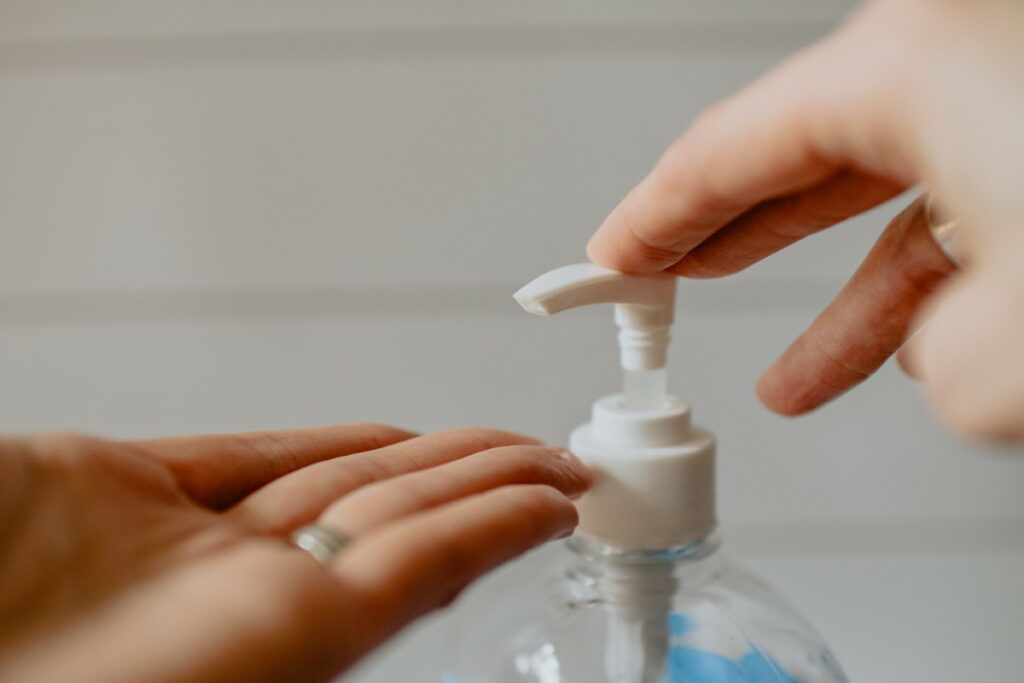
Getting back to your daily life doesn’t mean you need to abandon every precaution against COVID-19. In fact, carrying on taking certain safety measures can make the transition much easier, as you’ll feel more comfortable. These may include:
- Wearing face masks in public places
- Washing your hands regularly for at least 20 seconds
- Carrying hand sanitiser with you
- Getting vaccinated and boosted
- Taking a home COVID-19 test if you have any common symptoms
Accept that you can’t control everything
No matter how many precautions you take, it’s impossible to ever be 100% sure that you can avoid COVID-19 altogether. However, that doesn’t mean that a specific activity is definitely unsafe—it just means that you can’t know for sure.
The important thing here is not to let your fears limit what you can and can’t do. Instead, you need to be able to accept uncertainty. The world will always carry some degree of risk, and by making peace with this, you can begin to live a richer, fuller life.
Get help
While self-help techniques can be incredibly powerful, sometimes speaking to a professional is the best option. There are a number of therapies available which have proven to be highly effective at treating anxiety, including CBT, ACT and hypnotherapy.
If you’re looking to get help, then ManageMinds has a number of therapists to choose from, each of whom has received qualifications from one of the UK’s professional counselling bodies, with a range of therapeutic techniques available.
To get started, fill out our contact form or book therapy sessions with us. Together with one of our therapists, you'll work on tackling your COVID anxiety, helping you to start living life to the full once more.
Post Date:
Author: Andy Boardman
Explore More Articles
3 Mental Health Myths Your Therapist Is Sick of Hearing
It's great that more people are talking about mental health, but not everything you hear is necessarily true. Don't fall for these 3 mental health myths!
Feeling Worried? Challenge Anxious Thoughts with These Simple Questions
Stuck in a spiral of anxious thoughts? Use these 3 simple questions to challenge negative thinking and adopt a healthier mindset.
ManageMinds Explains... Narcissists
Even wondered if you or someone you know may be a narcissist? In this guide we cover what narcissistic personality disorder is, as well as the signs you need to watch out for.

